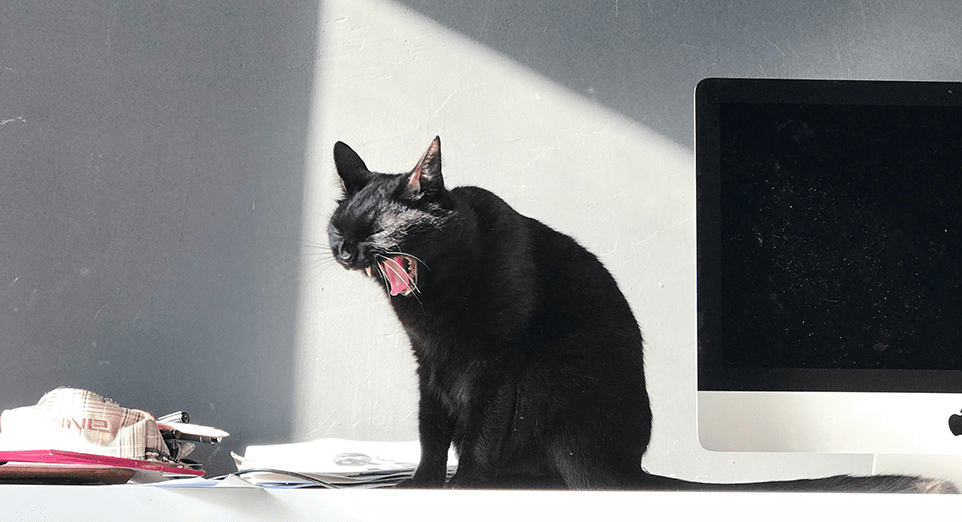
Are you burning the midnight oil? Do you find yourself spending hours scrolling through TikTok when you should be getting some rest? Or do you simply stay up binge-watching Netflix? While you might think the odd night of poor sleep is no big deal, consistently having a bad schedule could be playing havoc with your mental health.
Failing to follow a regular sleep pattern could increase your risk of depression and anxiety while lowering your overall mental well-being, according to a study from the University of Exeter. The study suggests that aligning with your natural body clock and getting the sleep that you need could help you to stay mentally well.
We all know that getting enough sleep at the right time is important. So, how much sleep should you be sleeping? “For healthy adults, most research suggests between seven and nine hours of sleep per night,” explains Ricky Thompson, Licensed Mental Health Counselor from Thriveworks Jacksonville. If you’re looking to increase this amount and get your nighttime schedule back on track, here are some tips you can follow.
Create a comfortable bedroom
Is your bedroom a chaotic mess of laptop cables, clothes and books? Do you eat, sleep and work in bed? If the answer is yes, it might be time to change your ways. Your room needs to be a calming environment in which you can relax, unwind and prepare yourself for a rested evening. Getting rid of distractions is the first step.
“Remember, your bed is for sleeping. You want your mind and body to associate your bed with sleep. Working from home does not mean working in bed,” says Thompson. “Avoid all electronic devices in bed. Also, avoid eating in bed. Make sure that the temperature in your bedroom is comfortable during the night. Clean, fresh sheets will also help us to relax.”

Avoid eating too late
Late-night snacking might be tempting, but it could also impact your sleep routine. For example, eating late could mean that you hit the hay later than you otherwise would. That small difference may impact when you go to sleep and, of course, the amount of sleep that you ultimately get throughout the night.
“Be mindful of what you eat and drink before bed,” says Thompson. “In particular, be cautious of alcohol and caffeine, especially later in the day, as both can disrupt the quality of your sleep. Also, be mindful of the amount of liquid you’re consuming in the evening. Drinking too much can lead to frequent nighttime trips to the bathroom interrupting your sleep.”
Exercise three hours before bed
Exercising helps wear us out mentally and physically, which is great news when it comes to our sleep patterns. However, if you’re thinking of doing a quick workout, timing it right could be the key to getting the rest that your body deserves. The key is not to be physically active too late in the evening so that you have the chance to wind down. What’s more, adding some calming activities into the mix could help prepare you for sleep.
“Try to utilise relaxation techniques such as deep breathing, meditation, or calming music,” suggests Thompson. “Exercise is not only good for us physically, but it also helps us to reduce stress and anxiety. Schedule exercise for about three hours before bedtime.”

Cut back on screen time
Addicted to your smartphone? You’re not alone. More than one in three young adults report ‘problem use’ of their smartphones, meaning that they are using the devices too often. While there are apps that can help you reduce your screen time, simply switching off your phone ahead of bed could be the answer to better sleep.
“Backlit electronic devices such as computers, phones, and tablets emit blue light which has been shown to reduce the production of our natural melatonin,” says Thompson. “The recommended simplest solution is to not bring devices into your bed. If you have to use your phone, for example, use the nighttime mode. This will reduce the blue light emissions.”
Use apps to relax before bed
While you might not want to take your phone into the bedroom, using it to unwind before bed could be a smart move. If you’re interested in boosting your mindfulness, there are plenty of apps you can use to help you along the way. Finding a calm place where you can take a moment to yourself is the right place to start.
“There are many free apps available to assist you with relaxation and improving sleep,” says Thompson. “I personally use and recommend Insight Timer and Ambience. Both have free guided and non-guided meditations, calming music, and breathing exercises.”

Stick to a solid bedtime routine
Sure, it might be boring to get into bed at the same time every night, but it’s a simple way to get your sleep routine on track. If you want to enhance your sleeping routine, start by creating one that works for you.
“Before going to bed it is important to relax and to prepare for bed. So, we need a routine time for when we go to bed and for when we get up,” says Thompson. “Try to go to bed around the same time every night and try to get up at the same time every morning. Do this seven days a week to maintain your ‘biological clock’.”
The Takeaway!
A poor sleep routine can have a knock-on effect when it comes to your mental health. Changing things up (for the better) is the best way to start getting a better night’s sleep. Why not get started today and make some positive changes?

































































